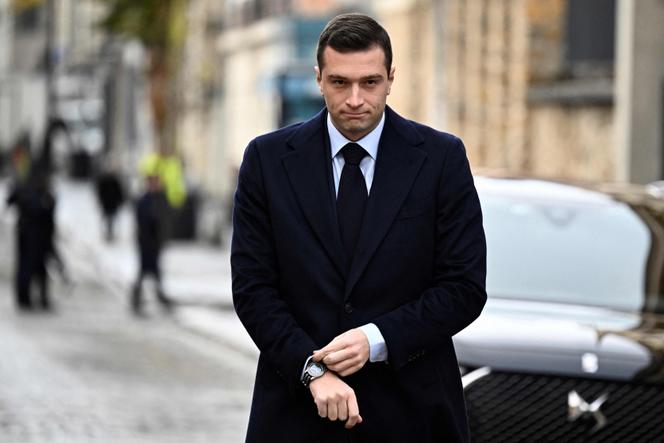


Jordan Bardella can "feel the wave rising" ahead of the European elections in June 2024. Of course, Nicolas Sarkozy used the same expression in April 2012, 10 days before being edged out in the first round of the presidential election by François Hollande. But this time, everything is leading the head of the far-right Rassemblement National (RN) to hope that he can "ride this populist wave, which is arriving in France a few years late" and which he believes will topple "Emmanuel Macron's passive presidency [in the 2027 presidential election], just as Donald Trump toppled Barack Obama's [in 2016]."
As early as the end of September, he was predicting a score of 30% for his party at the European elections, five points above the most optimistic polls. The latest surveys have brought it closer to a bar that the RN has never crossed in a national election, setting aside the run-offs of presidential elections, where they have always lost. The party's record dates back to 2015, during the regional elections (27.1% nationally) held a month after the November attacks in Paris.
For the June ballot, Bardella is counting on the momentum of the useful vote in the final stretch of the campaign to fulfill a triple objective: regaining the first place achieved in 2019, by once again outstripping Macron's camp; achieving a score that makes a lasting impression; and permanently weakening its direct competitors, Reconquête (far right) and Les Républicains (conservative), by pushing below the fateful 5% threshold which allows for entry in the European Parliament.
Over the past few weeks, leading figures from the RN have been touring the party's branches to explain the fundamentals of how the European Union (EU) works, describing it as gripped by imperialist madness. The party is concerned about a low mobilization from its popular electorate on the day, which is why it repeats the election date at every opportunity – it is the only message on Bardella's first campaign poster. The core of his program for Europe, however, is much less clear-cut.
The RN finds further cause for optimism in the election results abroad, which confirmed, according to Marine Le Pen, "the growing attachment to the defense of national identities." She hailed the unexpected resurrection of her old ally Geert Wilders, whose Party for Freedom, which is fundamentally Islamophobic, Euro-skeptic and economically liberal, took first place in the Dutch parliamentary elections on Wednesday, November 22.
You have 45% of this article left to read. The rest is for subscribers only.
